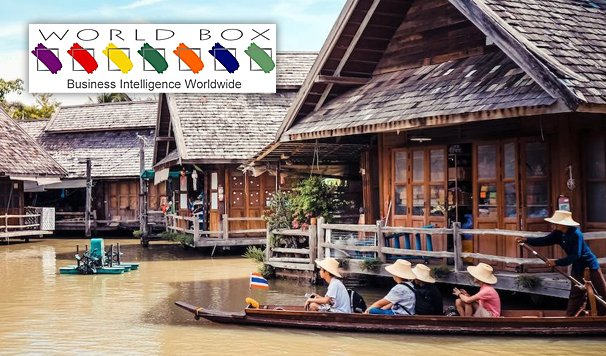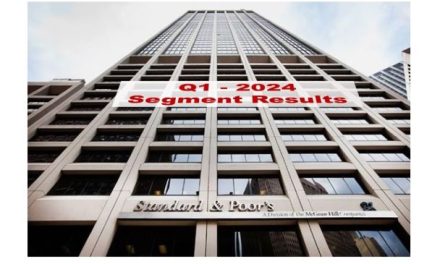Worldbox Country Risk Climate – March 2024
Thailand
Summary
| Overall Risk Score 20 (Stable)
Political risk: Stable 6/10 Economic risk: Stable 7/10 Commercial risk: Stable 7/10 The risk assessment of a country is made up of 3 components, being Political, Economic and Commercial. Each component is scored out of 10 with 1 being the highest risk and 10 the lowest. |
ESG Risk: 6/10 (Stable)*
*Environmental, social and governance (ESG) issues are becoming increasingly important to companies, investors and consumers in Southeast Asia. That is why we are now preparing a separate ESG score and section with our quarterly country risk reports. We explain how each country rates, looking at the E, S and G individually, and outline recent developments. |
Political Risk – Stable at 6
Thailand is a constitutional monarchy. The legislature is bicameral, consisting of a directly-elected House of Representatives with 500 seats and an upper house, the Senate, all of whose members are appointed by the Royal Thai Military, under the new Constitution adopted in April 2017, to serve five-year terms.
The King is the Chief of State and the Monarchy is hereditary. Traditionally, he has little direct power, but has been able to exert considerable influence over political affairs. In the case of the late King Bhumibol Adulyadej, who reigned from 1946 until his death in 2016, that reflected popular respect. Thailand also has one of the harshest lese majeste laws in the world, under which people can be charged for posting, sharing, or liking social media posts that are deemed offensive to the monarchy.
The royal family and military usually work in tandem, often using the lese majeste laws to suppress political dissent. They were used, for example, to justify the arrests of pro-democracy protesters by the government of former prime minister Prayuth Chan-ocha, who led a military coup in 2014 and remained the country’s leader until August 2023. The 2014 power grab marked Thailand’s 13th successful coup since it became a constitutional monarchy in 1932.
The military and the royal family also successfully blocked the reformist-minded Move Forward party from taking power after it far exceeded expectations to win 151 of the 500 seats in the lower house during the 14th May 2023 election. Move Forward had wanted to reform or even abolish the lese majeste laws.
Pheu Thai formed a broad coalition without Move Forward and was able to win the support of the Senate to form a government. Pheu Thai reneged on a campaign pledge not to support pro-military parties.
The new government, led by Prime Minister Srettha Thavisin, has pledged to focus on the economy. Srettha has described the post-pandemic economy as being like “a sick person,” adding that it is at risk of recession.
The government’s long-term goals include boosting international trade, supporting start-up businesses, investing more in transport infrastructure, improving agricultural production, empowering local government and increasing access to land ownership. The government would also seek to amend the current military-installed constitution through a process that allows public participation.
Meanwhile, it is pressing ahead with a short term spending programme aimed at stimulating growth, fulfilling a campaign pledge to handout 10,000-baht (US$280) to all Thais aged 16 and older. Pheu Thai estimates the spending will costs around 560 billion baht ($15.8 billion) and will be ready to deliver by the first quarter of next year.
However, there are concerns that the handout does not comply with Article 53 of the Financial Discipline Act which stipulates that the use of funds not in accordance with the normal budget can only be done in cases of urgent necessity. Pheu Thai may encounter difficulty acting its campaign pledge. Ratings agencies such as S&P and Moody’s have warned that the extra borrowing required to pay for the handouts could hit the country’s credit rating.
Move Forward, which is now the main opposition, is likely to prove highly effective in exploiting Thailand’s uncertain economic outlook, with growth slowing markedly following the pandemic amid the long-term economic challenges detailed in the economic risk section.
Economic Risk – Stable at 7
Thailand has been one of Southeast Asia’s most dynamic and successful tiger economies. The World Bank points out that over the past four decades, Thailand has made remarkable progress in social and economic development, moving from a low-income to an upper middle-income country in less than a generation. The economy grew by an annual average pace of 7.5% during 1960-96 and by 5% during 1999-2005 following the Asian Financial Crisis.
However, doubts have begun to surface in recent years about Thailand’s long-term growth prospects. The IMF in its 2022 Article IV Consultation, for example, points out that the economy faces long-term challenges that were evident even before the pandemic. It added that Thailand needed to identify new growth drivers to reverse the pre-pandemic trend of declining productivity growth and meet the challenges of the post-pandemic world.
Stagnating productivity is certainly one of the key challenges. Average growth in total factor productivity (TFP) fell from a high of 3.6% per annum during the early 2000s to just 1.3% during 2009–2017. Foreign direct investment (FDI) has fallen as a percentage of GDP since the military took power in 2014. An uncertain legal and political environment, corruption, powerful domestic oligopolies restrictions on foreign ownership deter FDI.
The ageing population is another challenge. Thailand is among the fastest ageing countries in the world, according to the World Health Organisation. Of its 67 million population, 12 million Thais are elderly according to the latest national statistics report. Since 2005, the country has been classified as an ‘aged society’ as people aged 60 years and above accounted for 10% of the population.
Aging will directly lead to increased spending needs, through rising public pension and healthcare costs. The combined fiscal costs of the Civil Servant Pension, the Social Security Fund, and the Old Age Allowance are expected to rise from 1.4% of GDP in 2017 to 5.6% in 2060. Long-term aged care and healthcare costs are also expected to rise. The projects that public expenditure on healthcare will increase from 2.9% of GDP in 2017 to 4.9% of GDP in 2060 due to aging.
The country’s dependence on tourism is yet another challenge. It is one of Thailand’s biggest industries, accounting for around 20% of GDP in 2019. However, the pandemic devastated the industry which has yet to fully recover. The main problem is that Thailand had become over reliant on Chinese tourists. Thailand hoped to see a resurgence in Chinese tourism in 2023 after Beijing finally lifted zero-Covid restrictions in January, allowing its citizens to travel overseas.
The Thai government predicted as many as five million Chinese tourist arrivals by the end of 2023 – still less than half the nearly 11 million who came in 2019. In 2022 only 270,000 Chinese tourists visited Thailand. But fewer than 2.5 million Chinese came to Thailand in the first nine months of 2023 and the outlook appears bleak given highly negative publicity about Thailand in China. A shooting at Bangkok’s most famous shopping mall in early October, in which a Chinese mother of two children was killed, added to Chinese fears about their safety in Thailand.
There have also been many reports in China about Chinese falling victims to scam centres in Thailand and other Southeast Asian countries. A blockbuster Chinese film in which a Chinese model and a computer programmer are lured to seemingly high-paying jobs in a scam centre in an unnamed South East Asian country that looks a lot like Thailand has further popularised the view that Thailand is unsafe for Chinese.
Very high levels of debt are also weighing on household consumption, another engine of growth. During the pandemic, Thai household debt soared to 90 per cent of GDP. The governor of the Bank of England has said tackling the issue is very challenging from a “political-economy standpoint.” Bloomberg has reported.
Commercial Risk – Stable at 7
The country ranked 101st out of 180 countries in Transparency International’s 2022 Corruption Perceptions Index, moving up three places from 2021. Regionally, Thailand lies behind Vietnam in 77th place, Malaysia ranked (61st), and Singapore (5th). According to Thailand’s National Anti-Corruption Commission (NACC), the government is still unable to tackle corruption in government bureaucracy, with rampant graft among state officials in budget management, conflicts of interests and lax law enforcement.
The country ranks 80th in terms of economic freedom, according to the Heritage Foundation’s 2023 index, down from 42nd in 2021. Dragged down by lower scores for business freedom, trade freedom, and rule of law, Thailand has fallen from the top half to the lower ranks of the “Moderately Free” countries. Fiscal health is strong, but the rule of law is generally weak, says the Heritage Foundation.
The Thai government has invested heavily in expanding and improving its infrastructure networks over the past decades. Severe road congestion remains a problem in Bangkok, which accounts for half of Thailand’s GDP, but the country has made significant strides in improving its digital infrastructure.
In terms of digital infrastructure, Thailand ranks 46th out of the 131 economies included in the World Economic Forum’s 2022 Network Readiness Index (NRI), jumping from 54 in 2021. It is ranked third among eight Association of Southeast Asian Nations (ASEAN) economies.
March Bulletin
Political Risk – Stable at 6
The confirmation of Srettha Thavisin as prime minister in August and the swearing in of a new government has removed much of the short-term political uncertainty affecting Thailand. But the path ahead looks precarious. The Diplomat Magazine said in November 2023, for example, that doubts regarding the sustainability of Srettha’s premiership continue to cast a shadow over Thailand’s future.
It explained that scepticism surrounding Srettha Thavisin’s longevity stems from doubts about his ability to navigate the country’s mounting economic challenges effectively. The Diplomat argues that:
“Srettha’s populist measures, particularly his stimulus plan, involve significant government spending and there is a fear that relying solely on such short-term populist policies, without accompanying structural reforms, may result in unsustainable levels of public debt. Policies that aim to appeal to the general public, often through direct financial assistance, may not necessarily address deeper economic challenges or contribute to long-term fiscal stability.”
The return of former prime minister Thaksin Shinawatra to Thailand has also added to the doubts over Srettha Thavisin’s future as prime minister. Thaksin may well be aiming to recapture the leadership of Pheu Thai, the latest reincarnation of the movement he founded, as well as the prime ministership.
Thaksin, 74, returned to Thailand in August after 15 years in exile. He subsequently received a combined sentence of eight years on three corruption charges. Since then, he has been confined in the Prison General Hospital. King Maha Vajiralongkorn commuted Thaksin’s sentence to one year.
Thaksin’s daughter, Yingluck Shinawatra, another former prime minister, may also re-enter the political fray at some point. In November 2023, the Supreme Court dismissed a criminal case against her. Yingluck, 56, faces one more arrest warrant on criminal charges filed by the National Anti-Corruption Commission that allege misuse of public funds.
Economic Risk – Stable at 7
In November, the IMF projected that the economy would grow by 2.7% in 2023, slightly higher than 2.6% in 2022, while inflation is expected to remain well-within the authorities’ target range. The organisation adds that it expects the recovery to accelerate in 2024 to 3.6% but that the global environment will be highly uncertain.
Headline inflation is forecast to average 1.3% in 2023, helped by continued measures to keep energy prices low and further improvements in global supply chains. With strengthening growth in 2024, headline inflation is expected to slightly accelerate to 1.6%, concludes the IMF.
The economy grew by just 1.5% in the third quarter, compared to the 2.4% predicted by economists, the second consecutive quarter of easing growth. Contractions in government expenditure, exports, and imports in both the agricultural and non-agricultural sectors highlight the difficulties facing the economy.
Commercial Risk – Stable at 7
In December 2023, S&P Global maintained Thailand’s Sovereign Credit Rating at ‘BBB+’ with a stable outlook reflecting the country’s sustained economic recovery and fiscal stability. The agency said that net general government debt had stabilized while Thailand’s external finances remained robust. The current account is also projected to remain at the surplus side during 2024 and 2026, mainly due to the recovery of tourism.
Environmental, Social and Governance (ESG) – Stable at 6
The United Nations’ Sustainable Development Goals (SDGs) are recognized as a beneficial framework for responsible investment. The Sustainable Development Report from Cambridge University Press assesses the progress of all 193 UN Member States on the SDGs. It provides a useful means of ranking Southeast Asian countries on their ESG progress.
Thailand is ranked 43 out of 166 in the 2023 report with a score of 74.7.
Environment: Thailand faces some severe environmental issues. Air pollution is among the most serious with around two million people needing hospital treatment in 2023 because of its effects. Air pollution was behind approximately 29,000 deaths in Thailand in 2021, according to Greenpeace Southeast Asia. Air pollution is blamed on poor rural farmers burning their crops during the “burning season”, which lasts from around mid-January to mid-April.
Thailand is also one of the ten most flood-affected countries in the world, while drought and cyclones also represent major hazards. There are warnings that these events may intensify due to climate change.
Social: The law provides for the right of workers in certain private-sector and state-owned enterprises to form and join independent trade unions, while Thais also enjoy the right to universal health care system and pension. There is also a minimum wage law, although it does not cover some areas such as government officers, state enterprise employees, domestic workers, maritime workers and agricultural workers.
Governance: Thailand scores highly relative to other countries in ASEAN in terms of corporate governance. In 2020, for example, the Securities Investors Association Singapore and the Centre of Governance, Institution and Organisation at the National University of Singapore Business School issued a report that found that Thai firms were more transparent than their peers in Singapore and Malaysia.
March Bulletin
Environmental, Social and Governance (ESG) – Stable at 6
In December 2023, the Thai Securities and Exchange Commission announced the launch of 22 new mutual funds to support the country’s ESG goals. The products are expected to attract investment of around 10 billion baht (US$284 million) by the year-end.
The move came after the SEC approved new criteria for Thailand ESG, or TESG, funds at the beginning of December. The introduction of such products was proposed by the Federation of Thai Capital Market Organizations (FETCO). Funds must invest in Thai bonds or the listed stock of companies that meet requirements for emissions disclosures and reduction targets, or those with outstanding environmental sustainability performance.
Latest economic data

f forecasts
* Worldbox Intelligence
** National Economic and Social Development Council
Source: IMF September 2022, except where stated
Useful Links
https://www.transparency.org/en/cpi/2021
https://www.imf.org/en/Countries/THA
https://www.adb.org/countries/thailand/main
About Worldbox Business Intelligence
Worldbox Business Intelligence, headquartered in Switzerland, is a Global API data solution provider of business intelligence and used in data analytics.
With the Global API solution Worldbox Business Intelligence enables clients and partners also a frictionless real time onboarding, KYC and compliance verification while rapid global investigations are provided, if needed.
Worldbox Business Intelligence provides global data in a standardised structure to more than 200 Million companies worldwide. The global network of subsidiaries, branches and desks allows to precisely and efficiently collect data and target key territories for clients and partners.”
“Worldbox Business Intelligence – Bringing Swiss Precision To Data”
Copyright (C) 2024 Worldbox Business Intelligence. All rights reserved.
Our mailing address is:
Worldbox Business Intelligence
Breitackerstrasse 1
Zollikon
Zurich 8702
Switzerland





























